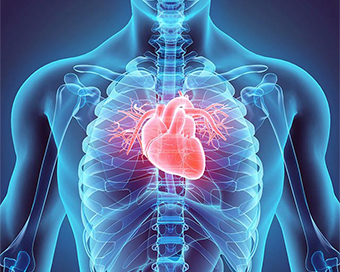Gallery
 PM Modi visit USA
PM Modi visit USA Only the mirror in my washroom and phone gallery see the crazy me : Sara Khan
Only the mirror in my washroom and phone gallery see the crazy me : Sara Khan Karnataka rain fury: Photos of flooded streets, uprooted trees
Karnataka rain fury: Photos of flooded streets, uprooted trees Cannes 2022: Deepika Padukone stuns at the French Riviera in Sabyasachi outfit
Cannes 2022: Deepika Padukone stuns at the French Riviera in Sabyasachi outfit Ranbir Kapoor And Alia Bhatt's Wedding Pics - Sealed With A Kiss
Ranbir Kapoor And Alia Bhatt's Wedding Pics - Sealed With A Kiss Oscars 2022: Every Academy Award Winner
Oscars 2022: Every Academy Award Winner Shane Warne (1969-2022): Australian cricket legend's life in pictures
Shane Warne (1969-2022): Australian cricket legend's life in pictures Photos: What Russia's invasion of Ukraine looks like on the ground
Photos: What Russia's invasion of Ukraine looks like on the ground Lata Mangeshkar (1929-2022): A pictorial tribute to the 'Nightingale of India'
Lata Mangeshkar (1929-2022): A pictorial tribute to the 'Nightingale of India' PM Modi unveils 216-feet tall Statue of Equality in Hyderabad (PHOTOS)
PM Modi unveils 216-feet tall Statue of Equality in Hyderabad (PHOTOS)The Badminton Association of India (BAI) has announced a 14-member-strong India squad for
- Men’s Sr Hockey Nationals to be played in division-based format from April 4
- Mensik denies Djokovic 100th title in Miami final
- KIPG: Son of a vegetable vendor, Bihar’s Jhandu Kumar eyes Worlds, 2028 Paralympics
- Hardik Singh credits hard work and team unity for receiving HI Midfielder of the Year award
- Djokovic, Alcaraz land in same half of Miami draw
Lung, heart damage in coronavirus patients can improve with time: Study Last Updated : 07 Sep 2020 12:30:55 PM IST 
File Photo The bad news is that people show lung impairment from Covid-19 weeks after discharge. The good news however, is that the impairment tends to ameliorate over time which suggests that the lungs have a mechanism for repairing themselves, researchers said on Monday.
The first follow-up of 86 patients infected with the coronavirus in the 'hot spot' Tyrolean region of Austria, presented at the European Respiratory Society International Congress, showed that the Covid-19 patients can suffer long-term lung and heart damage but, for many, this tends to improve over time.The patients were scheduled to return for evaluation six, 12 and 24 weeks after their discharge from hospital.At the time of their first visit, more than half of the patients had at least one persistent symptom, predominantly breathlessness and coughing, and CT scans still showed lung damage in 88 per cent of patients.However, by the time of their next visit 12 weeks after discharge, the symptoms had improved and lung damage was reduced to 56 per cent.The average age of the 86 patients included in this presentation was 61 and 65 per cent of them were male."The findings show the importance of implementing structured follow-up care for patients with severe Covid-19 infection. Importantly, CT unveiled lung damage in this patient group that was not identified by lung function tests," said Sabina Sahanic, a clinical PhD student at the University Clinic in Innsbruck, Austria."Knowing how patients have been affected long-term by the coronavirus might enable symptoms and lung damage to be treated much earlier and might have a significant impact on further medical recommendations and advice," she added.Nearly half of the 86 patients were current or former smokers and 65 per cent of hospitalised patients were overweight or obese.Damage from inflammation and fluid in the lungs caused by the coronavirus, which shows up on CT scans as white patches known as 'ground glass', also improved.It was present in 74 patients (88 per cent) at six weeks and 48 patients (56 per cent) at 12 weeks.At the six-week visit, the echocardiograms showed that 48 patients (58.5 per cent) had dysfunction of the left ventricle of the heart at the point when it is relaxing and dilating (diastole).Biological indicators of heart damage, blood clots and inflammation were all significantly elevated."We do not believe left ventricular diastolic dysfunction is specific to Covid-19, but more a sign of severity of the disease in general," Sahanic said."Fortunately, in the Innsbruck cohort, we did not observe any severe coronavirus-associated heart dysfunction in the post-acute phase. The diastolic dysfunction that we observed also tended to improve with time."In a second presentation at the event, Yara Al Chikhanie, a PhD student at the Grenoble Alpes University, France, said that the sooner Covid-19 patients started a pulmonary rehabilitation programme after coming off ventilators, the better and faster their recovery."How soon they can start rehabilitation depends on the patients being judged medically stable by their doctors. Despite the significant improvement, the average period of three weeks in rehabilitation wasn't enough for them to recover completely," Chikhanie said.IANS London For Latest Updates Please-
Join us on
Follow us on








172.31.16.186







